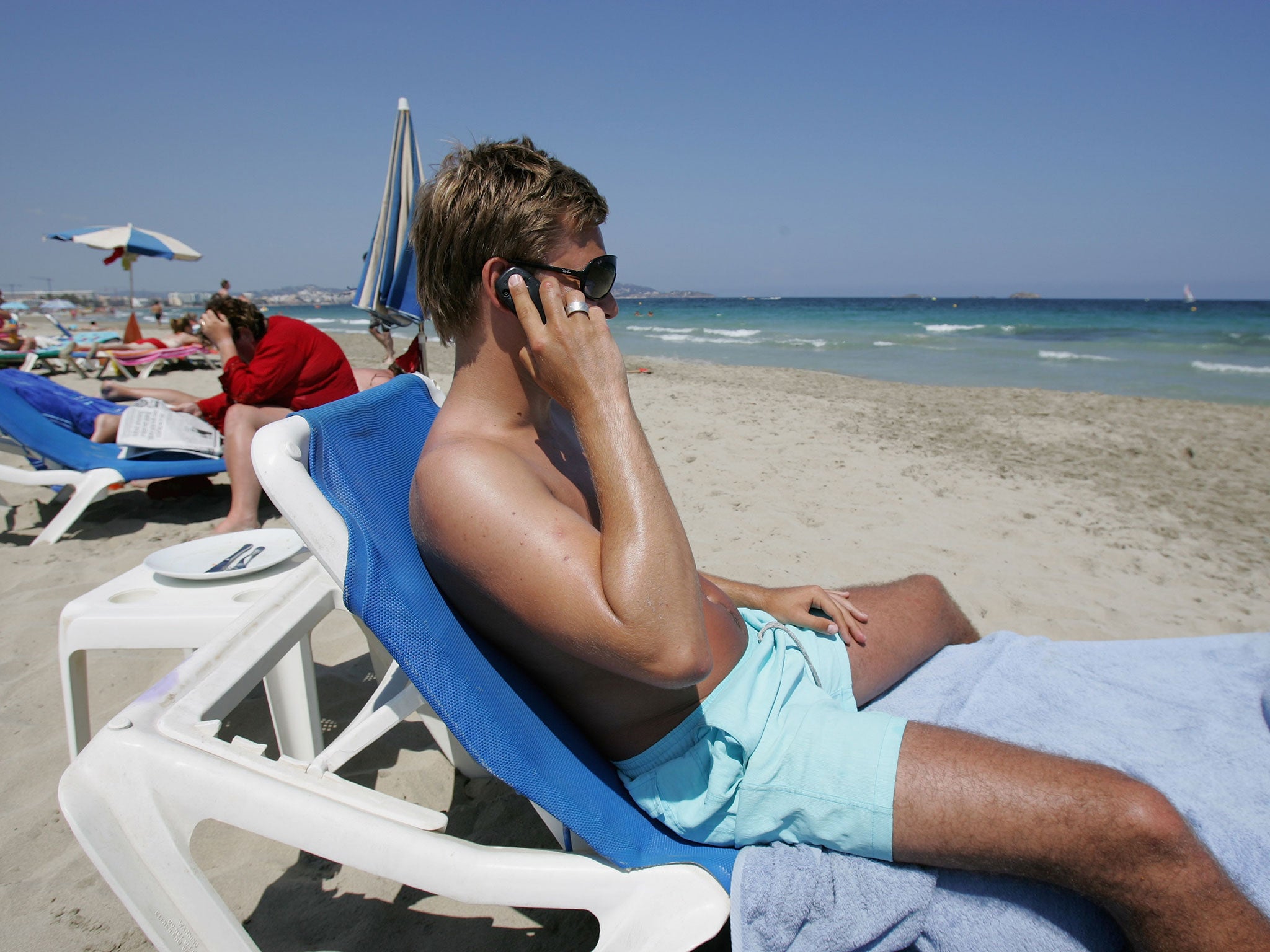We have created the ‘workcation’ – and it is changing our lives
Taking our jobs on holiday is more common than ever, with a huge effect on what we call leisure time


Your support helps us to tell the story
This election is still a dead heat, according to most polls. In a fight with such wafer-thin margins, we need reporters on the ground talking to the people Trump and Harris are courting. Your support allows us to keep sending journalists to the story.
The Independent is trusted by 27 million Americans from across the entire political spectrum every month. Unlike many other quality news outlets, we choose not to lock you out of our reporting and analysis with paywalls. But quality journalism must still be paid for.
Help us keep bring these critical stories to light. Your support makes all the difference.
The ugly word “staycation” was coined to describe the trend towards people staying at home during their vacation – going out for day trips, perhaps, but using their home as their base. There is as yet no word to describe the growing trend for people to do pretty much the reverse: going away on holiday but blending in some work – maybe quite a lot of it – into their holiday time. For many, indeed for many away this month, the frontier between work and leisure has become much more blurred. Each blends into the other, and not always to the benefit of either.
It is a trend we all recognise, but why is it happening? There is one obvious reason and some other rather less-obvious ones. The obvious one is the ubiquitous nature of communications. It is not just that everyone can be in touch with their work just about anywhere; it is also that for many people the tools they need to do their work – broadband for a start – are available too. Finishing a report or polishing a document can be done anywhere. On the internet no one needs to know where you are.
But there is more to this shift in behaviour. Just as important are the changing composition of the workforce and the changing nature of work itself. As far as the workforce is concerned, the biggest change has been the growth of self-employment, which has nearly doubled in the UK over the past 25 years. Management writer Charles Handy identified the growing division between core workers and portfolio workers back in 1990 in his book The Age of Unreason. People would learn their craft and make their contacts working full-time in whatever field they had specialised in as core workers, then later on they would go portfolio, self-employed and working for clients.
The remarkable thing about his vision was the timing: when he wrote it, the World Wide Web project was in its infancy and was only made available to the public the following year. So the key technology that facilitated the growth of portfolio working came after the trend had become established.
The combination of the growth of self-employment and portfolio working change the nature of holidays. Obviously, if you work for yourself (and, by the way, it looks as though there will be more self-employed people in the UK in another couple of years’ time than there will be working for the government) you make your own decisions about such things as holidays and retirement. You have the freedom to go off when you want but also the responsibility to keep clients on board. Some clients don’t need attention; others might. So a holiday can actually become a better holiday if you set aside a bit of time to help the business, and could become a much worse one if customers are upset when you do get back.
There is a further way in which the distinction between work and holiday is blurring, which is that the nature of work is itself changing in a host of different ways. Many jobs, of course, have to be performed at a single location: a factory, a hospital, a supermarket, pub or wherever. The people who make these places function have to “go to work”. But gradually the proportion of tasks that can be done wherever there is a broadband connection is rising relative to those that are location based. Just as most working people in Britain will now become self-employed at some stage of their lives, so too will most people be able to do at least some of their work from home – or, indeed, on holiday. Look at the way in which the recent London tube strike encouraged many people to work from home that day.
If many people can do at least some work at home, there are two groups where the distinction between work and leisure has pretty much disappeared. There is the small minority for whom the hobby has become the job. The evidence is anecdotal but it is clear there are many thousands of people who have managed to turn something they had done for leisure into an income-producing activity. These include artists and writers and craft-skilled workers. Then there is a rather larger group of people for whom work has become the hobby. These are people, often retired, who gift their skills to charities and other voluntary bodies. What they do does not appear in GDP and if it did the economy would be perhaps 15 per cent larger than it is. But it keeps many organisations going. Is a “holiday” that consists of going on an archeological dig work or leisure? Of course, it is both. It is an education too.
There are several growth points in the leisure business. These include activity holidays of all sorts, from hang-gliding to walking, and from some form of educational experience to volunteering. And for more and more of us, that activity includes a bit of work.
Join our commenting forum
Join thought-provoking conversations, follow other Independent readers and see their replies
Comments